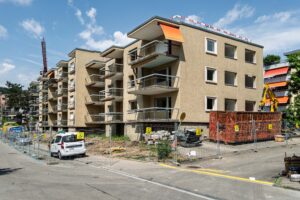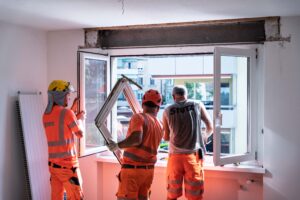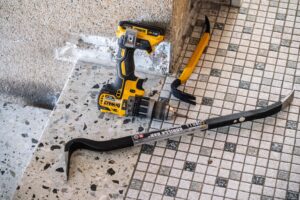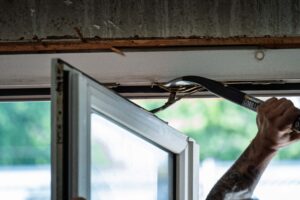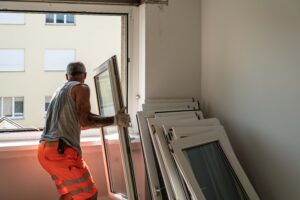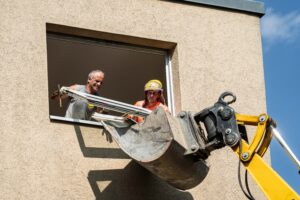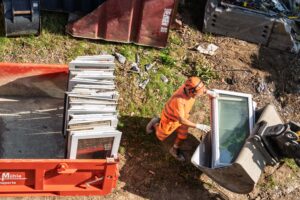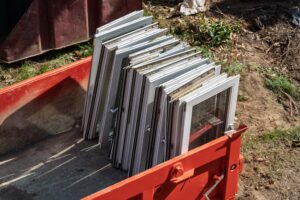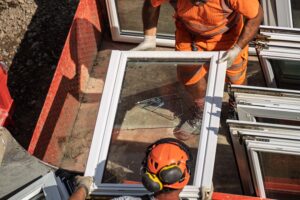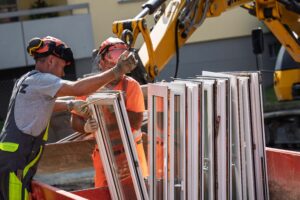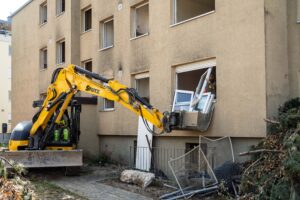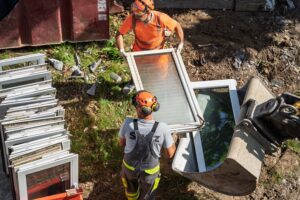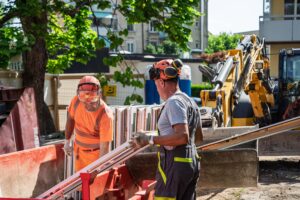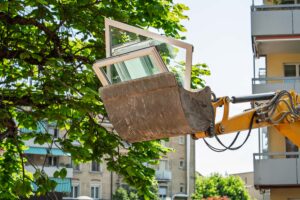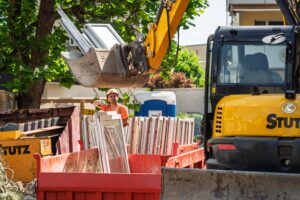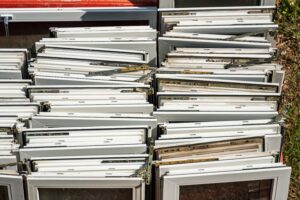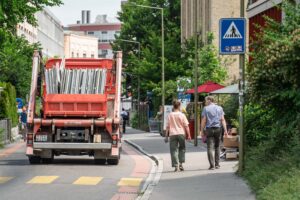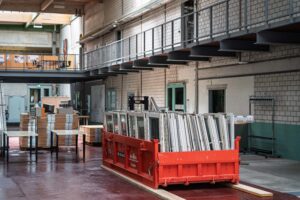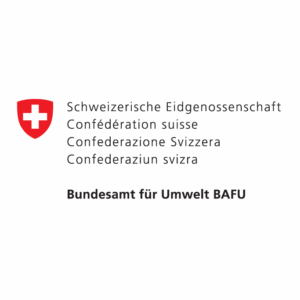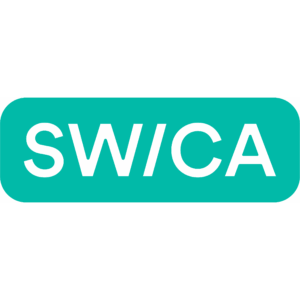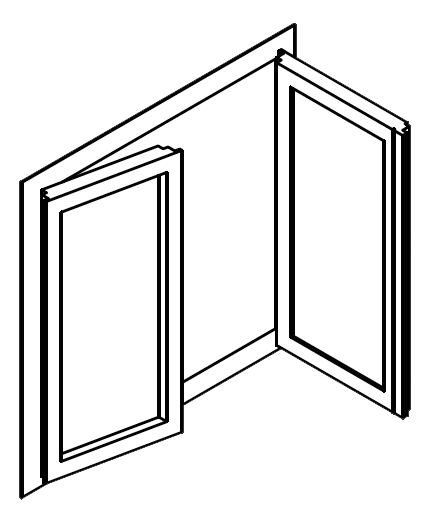Recycling Pilot Project
Large-Scale Flat Glass Recycling in Winterthur: A First in Switzerland
Every year, 500,000 tons of window glass are discarded in Switzerland, which is about 16 kg per second – the equivalent of a standard kitchen window. Yet for now, none of this glass is recycled to make new window glass. With this pilot project, we aim to prove that circular economy in the Swiss float glass industry is possible!
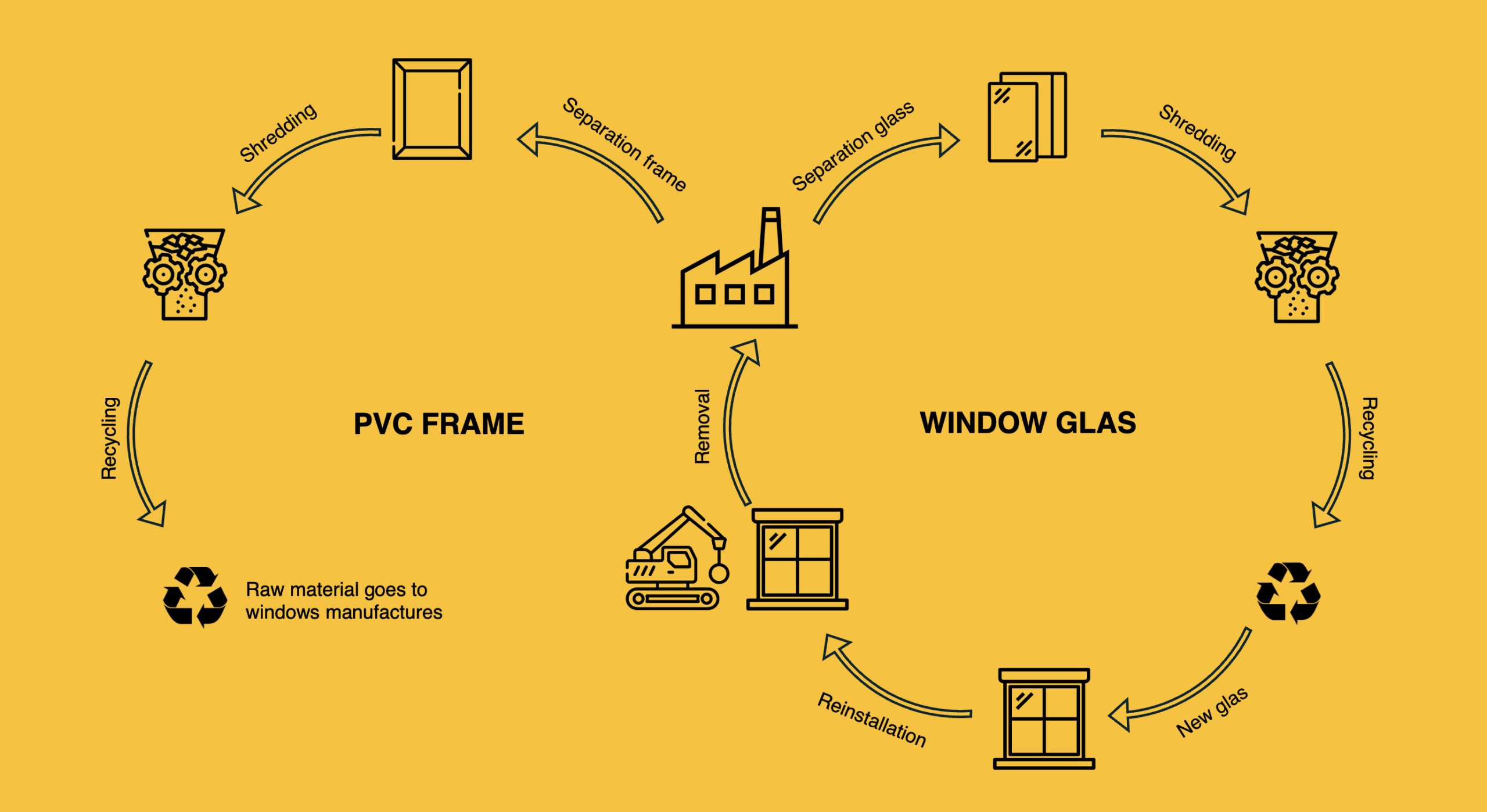
Every year, 500,000 tons of window glass are discarded in Switzerland, which is about 16 kg per second – the equivalent of a standard kitchen window. Yet, none of this glass is recycled to make new window glass 1:
– 18% is turned into bottles (downcycling)
– 82% ends up in landfills (landfill B)
This is particularly concerning as flat glass is one of the most CO₂-intensive materials in construction: 1 m² of triple glazing emits up to three times more CO₂ than 1 m² of a 20cm thick concrete slab 2.
The Windows of Opportunities project, led by ZHAW with the support of the FOEN (Federal Office for the Environment), Glas Trösch, SWICA, Birchmeiergruppe and STUTZ AG, will start on June 23 2025, in Winterthur. The goal of the project is to demonstrate that local and circular flat glass recycling is not only feasible but necessary.
While some players announce future industrial solutions, we are taking action: 5 tons of glass will be extracted, sorted, and recycled – without “downcycling.”
Three key steps will take place this summer in Winterthur and will be documented in videos, photos, and scientific texts:
– June 23: Collection of the 375 sashes at the demolition site
– July 9: Manual separation of glass and frames in our hall
– July 16: Collection and departure of materials to recycling facilities
The aim of this project is to prove that a Swiss flat glass recycling stream is technically, ecologically, and logistically viable. It is part of a broader reflection on circularity in the construction sector. With this project, we aim, among other things, to establish a recycling obligation for windows in Switzerland, so they no longer end up in landfills.
Pictures
